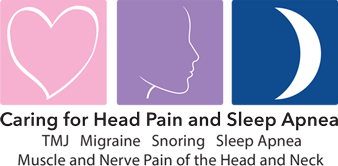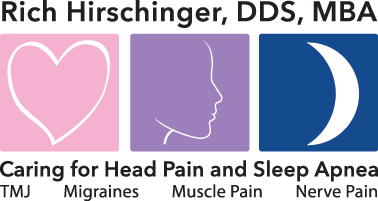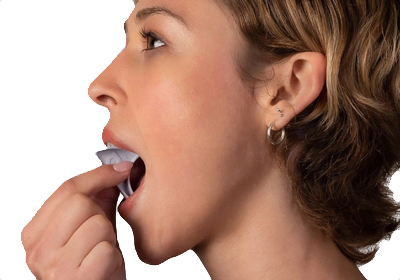

Diplomate American Board of Orofacial Pain
9615 Brighton Way, Suite 323
Beverly Hills, CA 90210
888.981.8981
 Treatments for Headaches
Treatments for Headaches
More About Headaches
The type and cause of the headache must first be determined before proper treatment can be established. However, there are several headache treatments that relieve symptoms for a variety of headache causes.
Migraine
Migraine can be treated on two fronts: preventive and abortive. Preventative medications seek to avoid the occurrence of a migraine while abortive medications relieve pain after onset. If a patient suffers from recurring migraines, preventive medications may be considered as part of a treatment plan. Preventive medications usually don't eliminate headaches completely, but they can help reduce the severity, length and frequency of migraines. Beta-blockers, anti-seizure medications, tricyclic antidepressants, Botox, and CGRP antagonists such as Aimovig, Ajovy, and Emgality have all been found potentially effective in preventing the occurrence of migraines in frequent sufferers. Calcium channel blockers are an option but they are usually tried last since their effectiveness is not as good as the other preventatives. If a moderate migraine is underway, a sufferer may find relief from some over-the-counter non-steroidal anti-inflammatory drugs (NSAIDs) such as Aleve, or a combination of aspirin and a cola with caffeine. Severe migraines are more effectively treated with triptans for relief of pain, nausea and/or light and sound sensitivity. Dr. Hirschinger can prescribe triptans, such as sumatriptan, rizatriptan and naratriptan among others, as well as dihydroergotamine (DHE), Nurtec, and Ubrelvy to abort a migraine that has already started.
Tension-type headaches

As tension-type headaches are caused by built up muscle tension in the neck or scalp, a massage may offer some initial pain relief. Over-the-counter pain medications such as aspirin, ibuprofen, acetaminophen, and naproxen can offer effective relief as well. A hot shower or bath or heating pad may also help loosen the muscle tightness causing the pain. Caffeine may also help to relieve tension-type headache pain by dilating blood vessels and increasing blood circulation to the affected muscle region. Treatment options that Dr. Hirschinger may prescribe include muscle relaxants, certain antidepressants, ethyl chloride, trigger point injections, and Botox. Lifestyle changes can be adopted to help with the prevention of headaches in the future, including changing sleep habits, increased exercise and stretching the neck, back and shoulder muscles if long periods of time at a desk or computer are a required part of a headache sufferer's job or lifestyle, as well as stretching the closing muscles of the jaw, which, when overused, can referred pain into the temples. Dr. Hirschinger is the inventor of the gentle jaw, which helps stretch the closing muscles of the jaw. It is critically important that patients keep their teeth apart during the day since if the teeth are held together, this can and will lead to increased pain and increased tension-type headaches.
Cluster headaches
Unlike other types of headaches, common over-the-counter pain relievers do not typically help abort a cluster headache. Instead, cluster headaches may be relieved by triptans, including sumatriptan, zolmitriptan, and frovatriptan, narcotics (which are frequently avoided as they are habit forming) and pure oxygen. Pain relief from inhaling 100 percent oxygen can be felt within 15 minutes, however this treatment is most effective before pain reaches its peak, so cluster headache patients may need to have an oxygen cylinder and regulator easily available and accessible. Triptans can be administered in an injectable form or nasal spray as an effective treatment for acute cluster headaches. Preventive strategies for cluster headaches include calcium channel blockers, corticosteroids, ergots, melatonin, or antiseizure medications.





